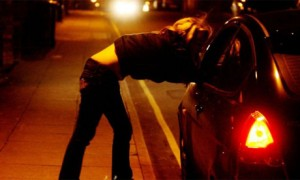The comprehensive new study, “Comparing Sex Buyers with Men Who Don’t Buy Sex,” headed by Melissa Farley, is a follow-up to Farley’s 2009 study, and discusses the characteristics of men who buy sex versus those who don’t. Besides their involvement with prostitution, they revealed different attitudes and behaviors when it came to sex. An overwhelming amount of johns reported that prostitutes “like” to have sex, which contrasted with the view of one non-sex buyer who said “They don‘t enjoy it at all. They just blank their mind out. Men think they enjoy it, but it is just fake.” Furthermore, non-sex buyers revealed that “coercing” someone by paying them for sex was not a “turn-on” for them.
 Johns reported that they purchased sex because they were guaranteed submissiveness on the part of the prostituted woman or child. The distinct power imbalance and lack of relationship obligation was noted as a driving factor for those who purchase sex. Many of the johns reported having girlfriends or wives, and say they purchase sex to do the “dirty” sex acts that they would not do with their significant others because these acts could cause her to lose her self esteem. Though sex buyers recognize these distinctions, many commented that the sense of entitlement and degradation towards woman that develops from purchasing sex taints other relationships and their general attitude towards women.
Johns reported that they purchased sex because they were guaranteed submissiveness on the part of the prostituted woman or child. The distinct power imbalance and lack of relationship obligation was noted as a driving factor for those who purchase sex. Many of the johns reported having girlfriends or wives, and say they purchase sex to do the “dirty” sex acts that they would not do with their significant others because these acts could cause her to lose her self esteem. Though sex buyers recognize these distinctions, many commented that the sense of entitlement and degradation towards woman that develops from purchasing sex taints other relationships and their general attitude towards women.
Two-thirds of both the sex buyers and non-sex buyers observed that a majority of women are lured, tricked, or trafficked into prostitution; however, this failed to deter sex buyers from purchasing sex. Almost all study participants agreed that minors were readily available to purchase for sex. About a third of sex buyers knew many prostituted women started when they were underage, but this also provided no deterrence from purchasing sex.
One non-sex buyer illustrated an understanding of the force used in prostitution:
“I don‘t think prostitution is quite the same as rape. Rape is worse. But it‘s close to the rape end of the spectrum. It‘s not rape, because there is superficial consent. On the face of it, the prostitute is agreeing to it. But deeper down, you can see that life circumstances have kind of forced her into that, even though she has agreed to it. It‘s like someone jumping from a burning building—you could say they made their choice to jump, but you could also say they had no choice.”
When asked what would deter them from buying sex, the top three deterrents incorporated consequences that would cause the buyer to be identified, these included: 1) added to a sex offender registry (89%), photo/name in local paper (84%), photo/name on billboard/poster (84%). Community service and having to attend an education program ranked as the least likely to deter a buyer from purchasing sex.
In efforts to slash demand, the Defenders, an initiative of Shared Hope, encourages accountability through the Defenders pledge that they will never purchase sex or engage in other exploitative behaviors. The Defenders host truck stop campaigns and motorcycle rallies to draw awareness to the issue and prove that some men defend women rather than exploit them.
 Legislators are taking note of the need for funding for victim services.
Legislators are taking note of the need for funding for victim services.  Flash Mob
Flash Mob The Village Voice has, for quite some time, run adult classified ads through
The Village Voice has, for quite some time, run adult classified ads through 





